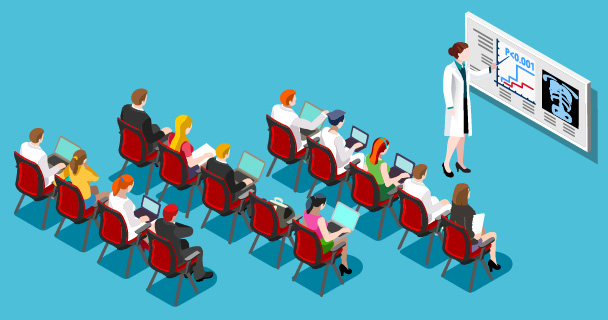blog


Healthcare keeps changing in dramatic fashion, and the coming year will continue that trend. There are issues ranging from what’s going on with the Affordable Care Act and efforts to transform or negate it to difficulties in finding staff and keeping them, not to mention training and the large-scale departure of many of healthcare’s leaders. We are also approaching a situation where millennials will make up the largest percentage of the healthcare workforce, bringing a new focus to the future of care.
Across the country, in systems both large and small, organizations are finding their own solutions to operational issues, with the hoped-for result being that systems that can adapt more quickly than ever to their own specific circumstances. Here are two specific trends involving the growing millennial healthcare workforce and how our industry will benefit as it adapts to them.
Millennials as Caregivers: Weighing the Pros and Cons
Other than Baby Boomers, it’s unlikely that any generation in the last century has gotten quite as much attention as Millennials, and much of that has been negative. Entitled, the “participation trophy” generation… the reviews are often unflattering and sometimes less than objective. Be that as it may, they are now the largest segment of the workforce (Diesing, 2016), and these men and women born between 1979 and 1994 are the face of healthcare now and will be going into the future.
Despite the bad rap they get, or maybe because of it, Millennials are not shy about the positives they bring to the workforce. They are self-confident, and firmly believe in the value they provide. They are change agents, often to the chagrin of more senior leadership, and are unafraid to ask “Why?”
What this creates is an employee who is more than willing to engage and learn new tasks, but also one who zeroes in on a work-life balance that older healthcare workers put less of a premium on. Savvy employers will play to Millennials’ strengths, building team-based approaches to daily problem-solving as well as ongoing education. They also will craft internal training and development messaging to mirror that found on social media, the Millennial’s “home away from home.”
This generation is more likely to seek new opportunities and is unafraid to change jobs frequently, so ramping up engagement strategies is a good buffer to ward off early exits (How Will Millennials Change the Healthcare Workforce?, n.d.).
Employee Development Adapting to Changing Learning Needs and Styles
Workforce training, whether through intense, one-on-one mentorships or a more traditional classroom setting, has never been more essential in healthcare. That being said, Millennials don’t learn the same way as Generation X and/or Baby Boomers, and so a one-size-fits- all approach isn’t applicable. How can effective, informative development programs be structured?
First, discover what’s needed in terms of the best learning and training style for the affected workforce. Depending on age and experience, they may be learners who want to hear presentations as well as read printed or online materials, or who want one or the other. Some may thrive in a classroom setting, while others want independent, self-guided learning. A third group may want both, and they all may want or need hands-on, learning lab-style training as well.
To cover all the bases, it’s likely the safest bet to develop a multimodal style for workforce training. Guard against creating a program that’s so broad and general it’s ineffective by customizing it to the facility’s unique environment, as well as to the specific group of employees being trained. Most importantly, get feedback throughout the process to make sure it’s what employees need—and if not, step back, regroup, and retool (“7 Best Practices for Hospitals’ Training, 2012).
These are only two of many trends in the current healthcare environment. Ongoing issues also include the continuing adaptation, evolution, and integration of electronic health records across multiple platforms, for instance, as well as the political shifts with regard to Medicare and Medicaid, and how reimbursements from the government and private insurers may be affected. As always, the best approach is to remain focused on providing the best possible patient care and stay abreast of trends to analyze the best way to accomplish that mission while also creating an innovative and forward-looking workplace for clinicians and support staff.
Learn more about HealthStream’s Healthcare Talent Management Solutions.
References
7 Best Practices for Hospitals’ Training and Development Programs. (n.d.). Retrieved from https://www.beckershospitalreview.com/hospital-management-administration/7-best-practices-for-hospitals-training-and-development-programs.html
Diesing, Genevieve, (20 16, November 11). How Millennials Will Transform Health Care. Retrieved from https://www.hhnmag.com/articles/7697-how-millennials-will-transform-health-care
How Will Millennials Change the Healthcare Workforce? (n.d.). Retrieved February 10, 2018, from https://www.amnhealthcare.com/latest-healthcare-news/healthcare-workforce-millennials/
HealthStream’s learning management system and healthcare training solutions support medical training initiatives and allow for the best patient care.
View All Learning & PerformanceExpand the decision-making skills and effectiveness of your healthcare workforce with HealthStream's workforce development programs and services.
View All Clinical DevelopmentComprehensive, industry-leading provider onboarding and credentialing software that validates health outcomes and supports provider assessment.
View All CredentialingMake sure your healthcare staff can schedule out appointments and work schedules with ease using our line of nurse scheduling software solutions.
View All SchedulingWhen you enact HealthStream's quality compliance solutions, you can do so with the confidence your healthcare organization will meet all standards of care.
View All Quality & ComplianceTransform end-to-end revenue cycle management with comprehensive education
View All Revenue Cycle EducationLearn about our advanced resuscitation training solutions. Our solutions are designed to help improve patient outcomes.
View All Resuscitation